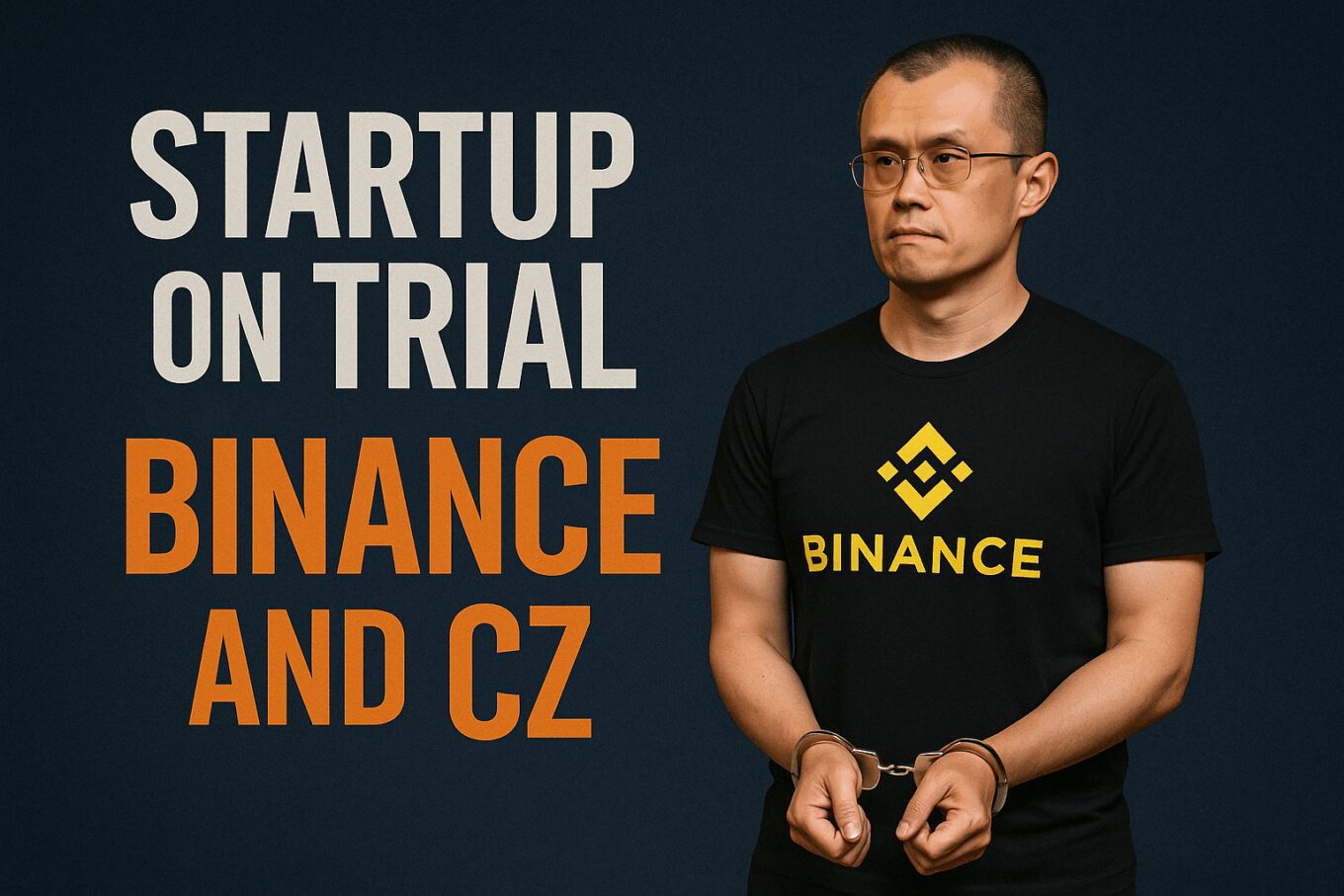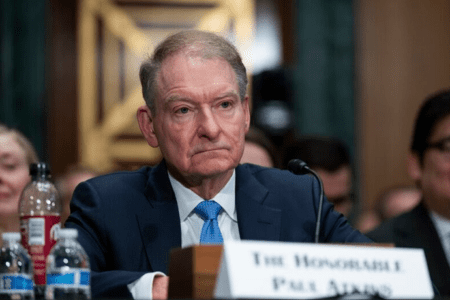Part of the Startup on Trial Series.
Excerpt
Binance, once celebrated as the world’s largest crypto exchange, fell from regulatory grace when founder Changpeng Zhao (CZ) pleaded guilty to money laundering charges in 2023. This case highlights how a tech behemoth grew rapidly by navigating around regulatory frameworks—and how global regulators, once slow to respond, eventually brought the empire to heel. A story of ambition, evasion, and the ultimate price of compliance neglect.
Key Points
- Binance allowed illicit transactions worth over $100 billion, including trades for terrorist groups and sanctioned nations.
- Changpeng Zhao (CZ) personally pleaded guilty to violating U.S. anti-money laundering laws and spent 4 months in US prision.
- Binance signed a plea agreement and agreed to a $4.3 billion settlement—one of the largest corporate penalties in U.S. history.
- A classic case of “jurisdiction shopping” and regulatory arbitrage.
- Sparks a regulatory crackdown on crypto exchanges worldwide.
Short Narrative
Founded in 2017, Binance rapidly became the largest crypto exchange by volume globally, eclipsing competitors with aggressive expansion, innovative products, and minimal compliance burdens.
Its motto? “Better to ask for forgiveness than permission.”
From offering leveraged crypto futures to retail investors, to servicing clients in sanctioned jurisdictions like Iran and North Korea, Binance exploited regulatory loopholes across dozens of jurisdictions while claiming to have no physical headquarters—thus evading clear national supervision.
Behind the scenes, Binance lacked basic Know-Your-Customer (KYC) and Anti-Money Laundering (AML) protocols for years. Internal chats revealed that Binance executives, including CZ himself, acknowledged and joked about onboarding illicit actors.
The final blow came when multiple U.S. agencies coordinated to take down Binance in 2023—forcing CZ to plead guilty and resign as CEO. He had to serve 4 months in prison. Zhao’s sentence was notably lighter than that of other high-profile crypto executives, such as Sam Bankman-Fried, who received 25 years for fraud related to FTX.
Read our Startup on Trial report on FTX
Legal & Regulatory Problems
United States (DOJ, FinCEN, OFAC, CFTC, SEC)
- DOJ Charges: Failure to maintain an effective AML program, operating an unlicensed money services business.
- FinCEN and OFAC Violations: Enabling financial transactions for sanctioned countries and terror organizations.
- CFTC Action: Operating an illegal derivatives trading platform without CFTC registration.
- SEC Lawsuit (pending): Unregistered securities offerings and wash trading allegations.
Global
- UK, Germany, Japan, and Singapore: Issued warnings or bans against Binance services.
- EU’s MiCA Regulation: Binance is a catalyst for stricter unified crypto rules in Europe.
Consequences
- Company: Binance paid $4.3 billion in fines and agreed to monitor reforms overseen by U.S. authorities.
- Individuals: CZ personally paid $50 million and was sentenced to four months in prison in April 2024 after pleading guilty to failing to maintain an effective anti-money laundering program at the cryptocurrency exchange
- Reputation: Binance remains operational but under intense global scrutiny; institutional trust severely damaged.
- Crypto Industry: Exchanges worldwide rushed to strengthen compliance departments.
Multi-Jurisdictional Lens
- U.S. Enforcement: Aggressively coordinated multi-agency action to impose fines and gain leverage over future crypto enforcement.
- Europe: New MiCA framework introduced mandatory licensing and consumer protections.
- Asia: Markets like Singapore distanced themselves from Binance, promoting regulated alternatives.
- Middle East: Dubai and Bahrain adopted a softer regulatory posture—highlighting a fragmented global crypto environment.
Lessons Learned & Recommendations
- Compliance must scale with growth: Operating globally demands matching local regulatory requirements—not ignoring them.
- No “headquarterless” defense: Claiming no headquarters won’t shield companies from enforcement.
- AML is existential for crypto: Exchanges are financial institutions and must act accordingly.
- Founder behavior sets culture: CZ’s personal decisions (and public defiance) deeply shaped Binance’s regulatory fate.
- Regulatory arbitrage is dead: The era of hiding behind jurisdiction shopping is closing fast.
Call for Information
Do you know other crypto startups, fintechs, or exchanges exploiting regulatory gaps, offering shady products, or onboarding high-risk clients without proper controls?
Submit your information confidentially via Whistle42.com – and be part of making the financial world more transparent.





